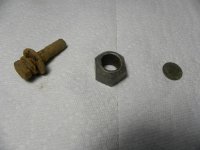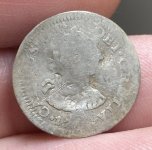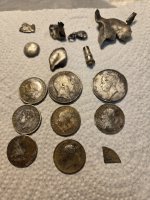olekyground
Bronze Member
- Apr 4, 2009
- 1,565
- 429
- Detector(s) used
-
garrett A.T. gold
Other detectors: fisher F2/ Garrett ace 250
- Primary Interest:
- All Treasure Hunting
I have a question. I am very new to all this. I have a Whites M6 detector. Is that a good detector to find meteorites with and how do I find them?? Can they be in my back yard?





